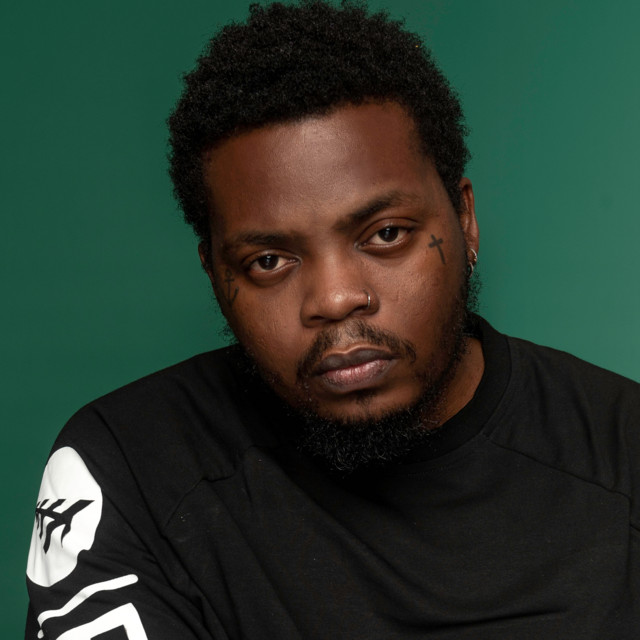A man has been executed for the brutal slayings of two hotel workers during a robbery in 2001 in Oklahoma’s first execution this year.
Donald Grant, 46, received a lethal injection at the Oklahoma State Penitentiary in McAlester and was declared dead at 10:16 am.
Yo, God, I got this,’ Grant said while lying strapped to the gurney, delivering his disjointed last words for two minutes. ‘No medication. I didn’t take nothing. Brooklyn for life.’
Grant, who grew up in foster homes in Brooklyn, blamed the devil for killing Brenda McElyea, 29, and Felicia Suzette Smith, 43 – and then offered an apology.

‘First and foremost, I’d like to express my sincere deep regrets and remorse for my actions.’ said Grant, who at one point appeared to have tears roll down his face.
‘I know words can’t bring them back. I understand… I can’t change that. You know, I wish I could and everything.’
The killer had requested the last meal on Wednesday of sesame chicken and shrimp fried rice, along with six egg rolls. He also asked for a large apple fritter, or if that dessert wasn’t available, three pints of strawberry ice cream.
It was the third execution in Oklahoma since the state resumed lethal injections in October following a nearly seven-year hiatus.
Even after Grant was told his two minutes to deliver his last words had ended and the microphone turned off, Grant continued to speak to about seven witnesses who attended the execution on his behalf. Including members of the press, there were 18 total witnesses to the procedure.
After the injection was first administered at 10.03 am, witnesses said that Grant mouthed the words ‘hold it down, hold the fort down, I’ll be back’ to his family members bearing witness.
A few minutes later at 10.06am, Grant’s eyelids began to droop and he appeared to be sleeping. After a doctor entered the room to conduct a consciousness check, rubbing his sternum and calling his name, Grant could be heard snoring as a prison official declared him unconscious at 10:09am. He appeared to stop breathing about two minutes later.
‘The State’s execution of Donald Grant was carried out with zero complications at 10:16 this morning. Justice is now served for Brenda McElyea, Felecia Suzette Smith, and the people of Oklahoma,’ Oklahoma Attorney General John O’Connor said in a statement.
Shirl Filcher, the sister of McElyea, said her family felt that justice had been served.
Although Donald Grant’s execution does not bring Brenda back, it allows us all to finally move forward knowing justice was served,’ Filcher said after witnessing his execution. ‘There was a time that there was doubt that justice would ever be served, and now there is none.’
“Today marks 20 years, six months, nine days and just minutes since Brenda McElyea was taken from this world by Donald Grant, but today, justice was served,” Filcher said.
‘Brenda’s father Walter McElyea’s dying wish was for justice to be served, and although he did not live to see it, I know he is rejoicing today.’
‘[Now] we can move forward, and the memories of the murder, the trial and the years spent waiting can be replaced with happier memories of Brenda, memories of her laughter, her smile, her wit, her charm and her loving heart. I, for one, am ready to remember the beauty of my sister instead of reliving the brutality of her death.’
Grant had asked a federal judge to temporarily halt his execution, arguing that he should be reinstated as a plaintiff in a separate lawsuit challenging Oklahoma´s three-drug lethal injection protocol as presenting a risk of unconstitutional pain and suffering.
But both a federal judge and a three-judge panel of the 10th U.S. Circuit Court of Appeals in Denver previously denied that request. The U.S. Supreme Court denied Grant´s request on Wednesday.
During a clemency hearing in November, Grant’s attorneys argued that their client was suffered from schizophrenia and brain damage, making him a candidate for clemency. But Oklahoma’s Pardon and Parole board voted 4-1 to go ahead with his execution.
More than 7,000 people signed a petition urging the state to grant the killer clemency.
‘Donald Grant’s mental illness and congenital and acquired brain damage was so severe that it took five years for Mr. Grant to be stabilized where he could somewhat assist his attorneys in his defense,’ read the document.
‘There was no assurance Mr. Grant was even competent to be put on trial, but he was in 2005 and sentenced to death.
‘The jury who sentenced Mr Grant to death received limited evidence of his severe, documented mental illness.
‘The jury never saw pictures of Mr Grant’s visible brain damage or had an expert explain the impact this damage and his undisputed mental illness had on his crime and behavior.’
Grant admitted killing McElyea and Smith so that there would be no witnesses to his robbery of the Del City hotel. He said he robbed the hotel of $1,500, and used $200 to bail his girlfriend out of jail.
His girlfriend testified against him in court, saying that he bragged about what he did, and that he ‘didn’t have any remorse.’
The women were found dead in different rooms inside the hotel on July 18 of 2001.
McElyea was shot in the head. Smith was shot three times, cut repeatedly with a knife, beaten over the head and had her neck twisted. Prosecutors say both women also begged him to spare their lives before he killed them.
An investigator at the time said that the crime scene was ‘something out of a Stephen King movie,’ according to The Oklahoman.
During November’s hearing, he expressed ‘deep, sincere remorse’ and apologized for the killings, but the state´s Pardon and Parole Board voted 4-1 against recommending clemency.
‘I can’t change that,’ he said of the crime while speaking to the board. ‘If I could, I would, but I can’t change that.’
Two of Donald Grant’s attorneys, Susan Otto and Emma Rolls from the federal public defender’s office, argued that he was mentally ill and had suffered brain damage that made him a candidate for mercy.
They also discussed Grant´s childhood growing up in a New York City housing project during the crack epidemic of the 1980s, a time when he was frequently beaten and members of his family experienced alcoholism, drug addiction, and mental illness.
In 2001, a psychologist who examined Grant reported he ‘lapses into paranoid ramblings regarding the President, CIA, FBI, Congress, and, most significantly when I saw him, the United Nations being of the devil and going against the ‘Five percenters’ who are the “true believers.”‘
Another psychologist who examined him in 2002 said he believed he would return to Oklahoma 16 years after his execution to initiate Armageddon. But the board also heard from members of McElyea’s family, who tearfully urged them to reject clemency for him.
Filcher recalled the pain she experienced when she had to tell their father that McElyea had been killed.
‘I had to call my dad and tell him his daughter, his baby girl, was dead,’ Filcher said. ‘I had never seen him cry, but that night I heard him weep and it broke my heart.’
















Be the first to comment